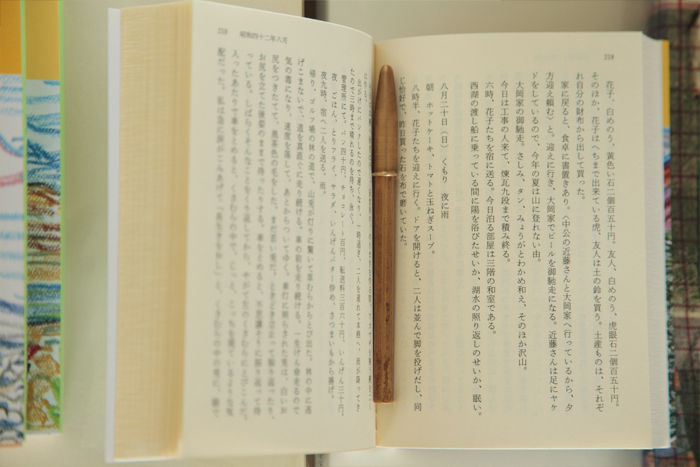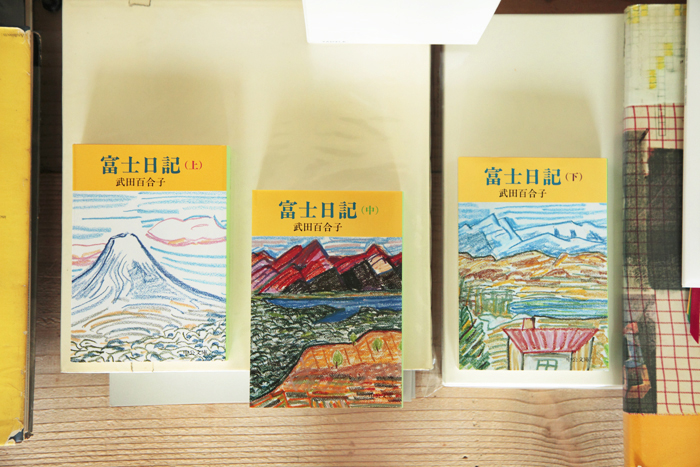『富士日記』は、作家の武田泰淳の妻であり、写真家の武田花子の母でもある、武田百合子の日記です。武田百合子は1925年(大正14年)に横浜に生まれました。もしご存命であれば、今年は米寿にあたります。この年に生まれた人の特徴は、昭和の年号と共に年齢を重ねる点にあります。すなわち、11歳で二・二六事件、16歳で真珠湾攻撃、20歳で敗戦、そして戦後のどさくさと復興を経て、39歳で東京オリンピックを経験することになります。
『富士日記』の名称は、一家が過ごし、日記を綴った別荘が富士山の麓にあったことに由来します。昭和39年7月から昭和51年9月までの日記は、武田百合子が39歳から51歳までの日記です。日々の食事、何気ない生活、木や花や虫の生態、これらがたんたんと綴られていて、一見単調な日記ですが、初版の刊行から今日まで版を重ねてきました。読み継がれてきた訳は、日々の食事と何気ない生活にこそ著者が喜びを感じ、それが筆致から滲み出ているからではないかと私は考えています。
昭和40年代は、様々な矛盾を抱えながらも、経済が復興を遂げた時代。今日からみればごく普通の生活かもしれませんが、昭和初期を生きた人にしてみれば、安堵以外の何者でもなかったのではないかと想像できるからです。
 PHOTOGRAPHY BY KAZUO MINATO
PHOTOGRAPHY BY KAZUO MINATO
“Fuji Nikki”is the journal of Yuriko Takeda, wife of author Taijun Takeda and mother of photographer Hanako Takeda. Yuriko Takeda was born in 1925 (Taisho 14) in Yokohama. If she were alive today, she would turn 88 this year. What's special about people born in this year is that they would become older with the Showa era. That is, at 11 years old, there would have been the February 26th Incident; at 16, the attack on Pearl Harbor; at 20, the defeat in the war; and after the postwar mess and recovery, they would have experienced the Tokyo Olympics at 39.
The name “Fuji Nikki”comes from the villa at the base of Mt. Fuji where the family spent their time and she wrote the journal. The journal, from July Showa 39 (1964) to September Showa 51 (1976), was Yuriko Takeda's diary from the time she was 39 to the time she was 51. At first glance it is a monotone journal with her dispassionate writing about her daily meals, her simple life, and her daily life, but it has continued to be published up to today. I think the reason it is well-loved is because the author takes joy in her daily meals and simple life, and that comes out in her writing.
Although there were many contradictions in the Showa 40's (mid-1960's), it was the era when there was a full economic recovery. From today's perspective it may seem like an ordinary life but from the perspective of someone who lived in the early Showa era, it was nothing but solace.
 PHOTOGRAPHY BY KAZUO MINATO
PHOTOGRAPHY BY KAZUO MINATO

 PHOTOGRAPHY BY KAZUO MINATO
PHOTOGRAPHY BY KAZUO MINATO